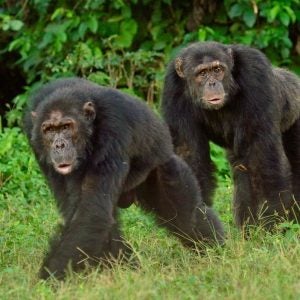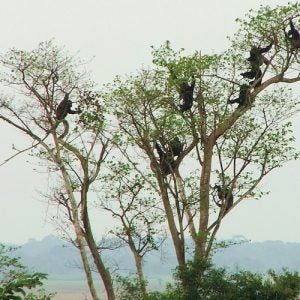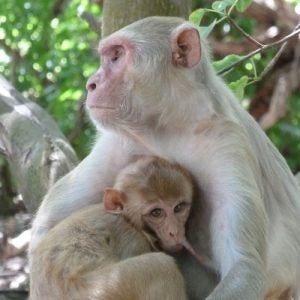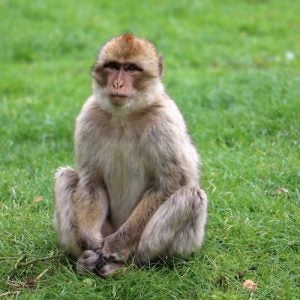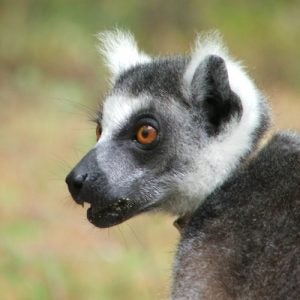For our research with nonhuman primates, we partner with parks, sanctuaries, zoos and research centers in the US, Europe, and Africa. This approach allows us to study animals living in socially and ecologically-rich environments, and understand their cognition and behavior in natural contexts. In addition, we collaborate with studies of wild primates to understand cognition in the field. Finally, we conduct research with human participants online and in our laboratory space at the University of Michigan.
Ngamba Island Chimpanzee Sanctuary, Uganda
Ngamba cares for ~50 wild-born orphans of the bush-meat and pet trade. The group free-ranges on an island of over 90 acres of rain forest. We conduct research in the apes’ sleeping dormitory, and partner with sanctuary staff to conduct observations of behavior in the group.
Tchimpounga Chimpanzee Sanctuary, Congo Republic
Overseen by the Jane Goodall Institute, Tchimpounga cares for ~140 wild-born orphans from the bushmeat and pet trade. Chimpanzees live in multiple groups that free-range in forested enclosures or islands. We conduct studies of cognition in the apes’ night dormitories.
Cayo Santiago Field Station, Puerto Rico
This population of ~1500 rhesus monkeys was introduced to Cayo Santiago in the 1930s. Monkeys free-range through the island’s 38 acres, living in natural multi-male multi-female social groups. We approach calmly-sitting monkeys to conduct our cognitive studies.
Trentham Monkey Forest, UK
The ~140 Barbary macaques at Trentham semi-free-range in a 60 acre forested park. The monkeys are a cold-adapted species and can live outside comfortably year-round. We approach calmly-sitting monkeys to conduct our cognitive studies.
Duke Lemur Center, USA
The DLC cares for ~220 lemurs from 20+ species, including Coquerel’s sifaka, ruffed lemurs, ringtailed lemurs, and mongoose lemurs. Lemurs live in species-appropriate social groups, and many free-range in 80 acres of Duke forest during the warmer months.
Kibale Chimpanzee Project, Uganda
This long-term study of wild chimpanzee behavior, ecology, and physiology was established in 1987 to study the Kanyawara community in Kibale National Park, currently numbering ~50 individuals. We collaborate with the KCP team as part of several projects.

